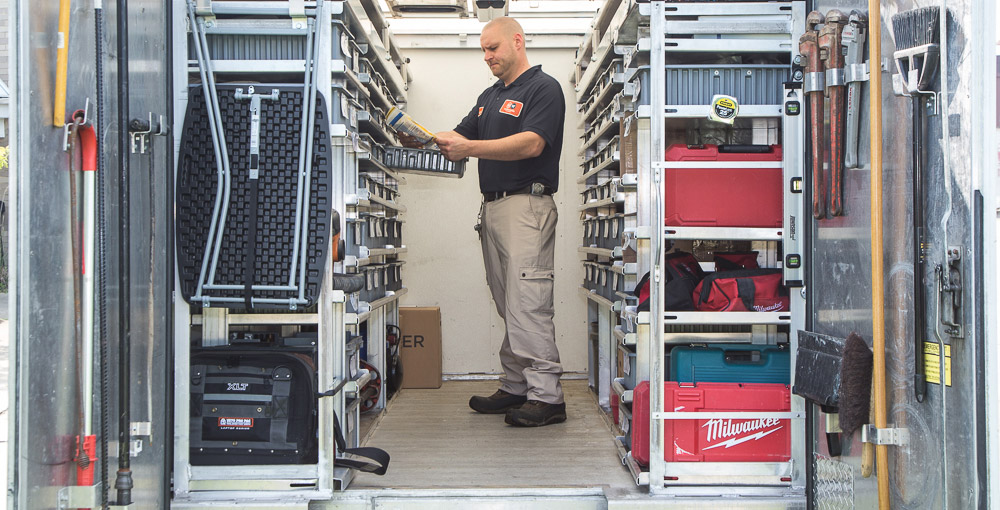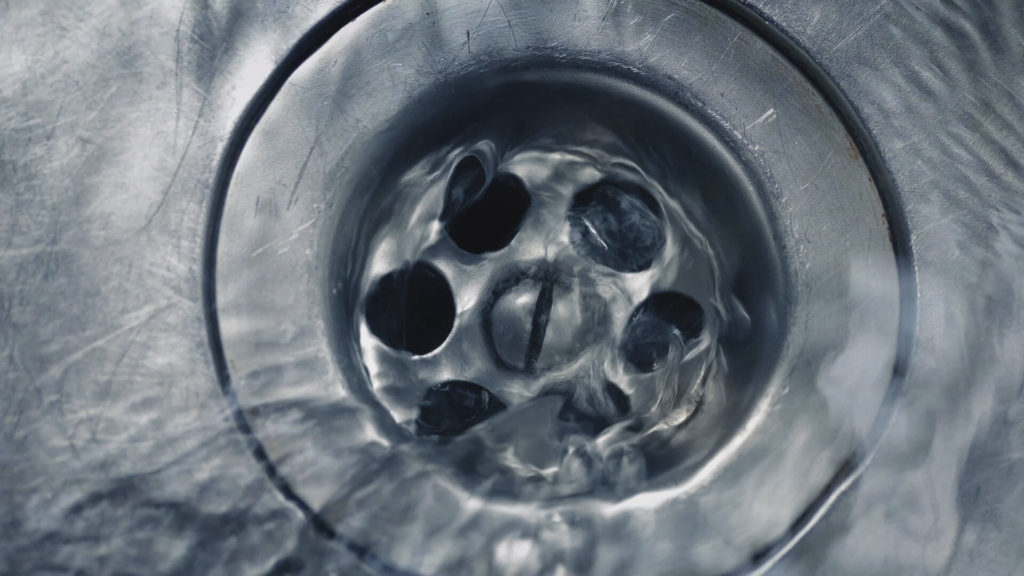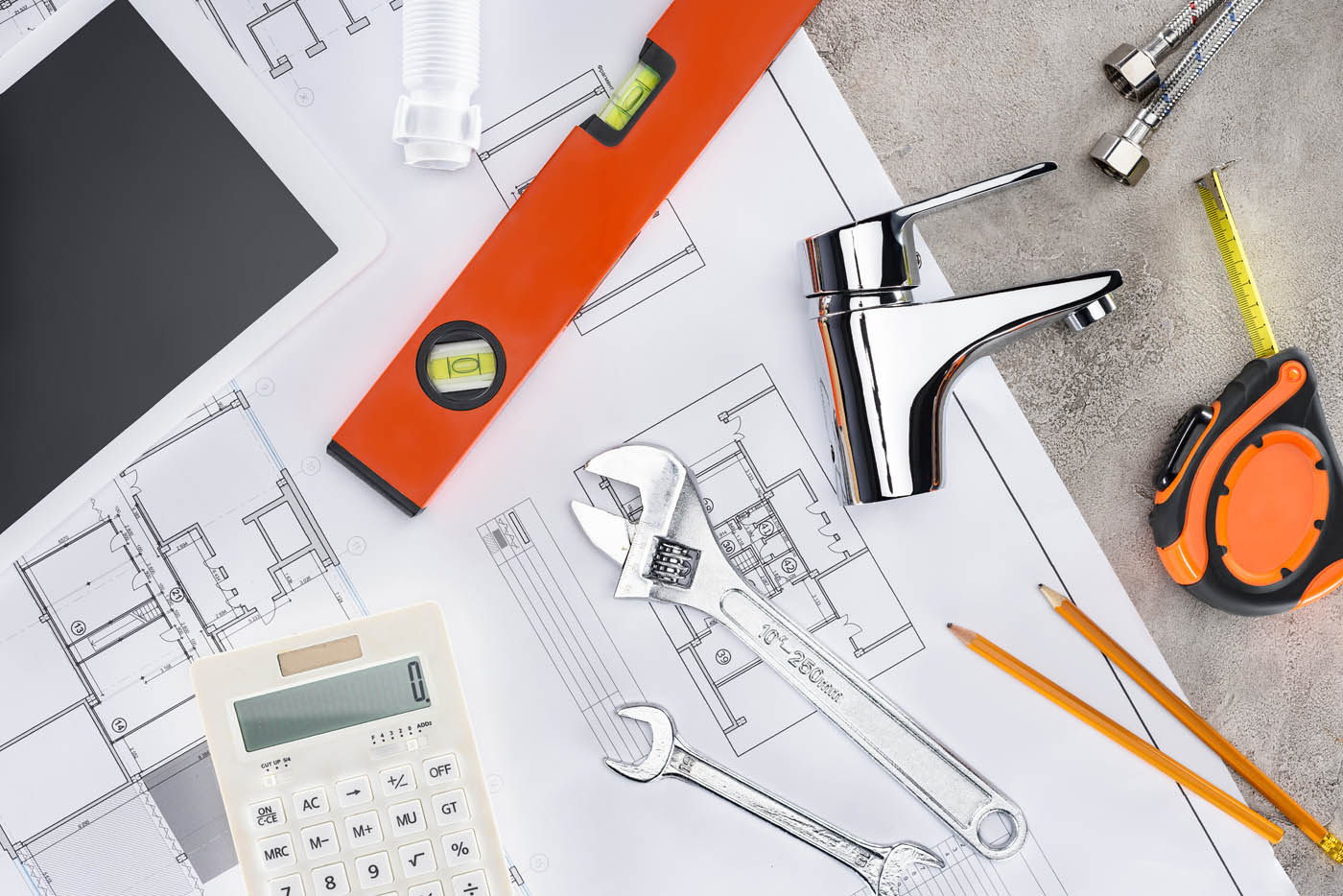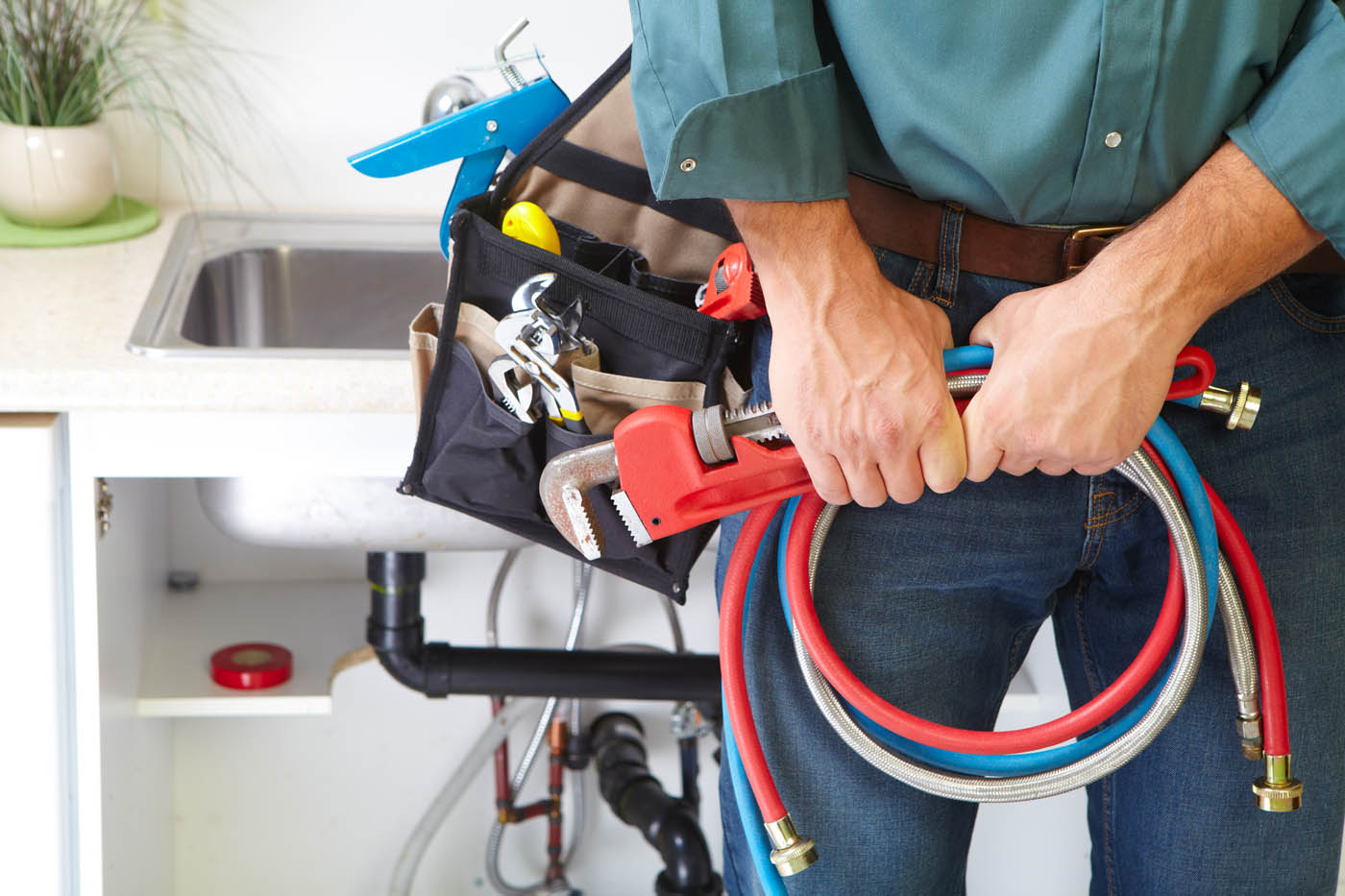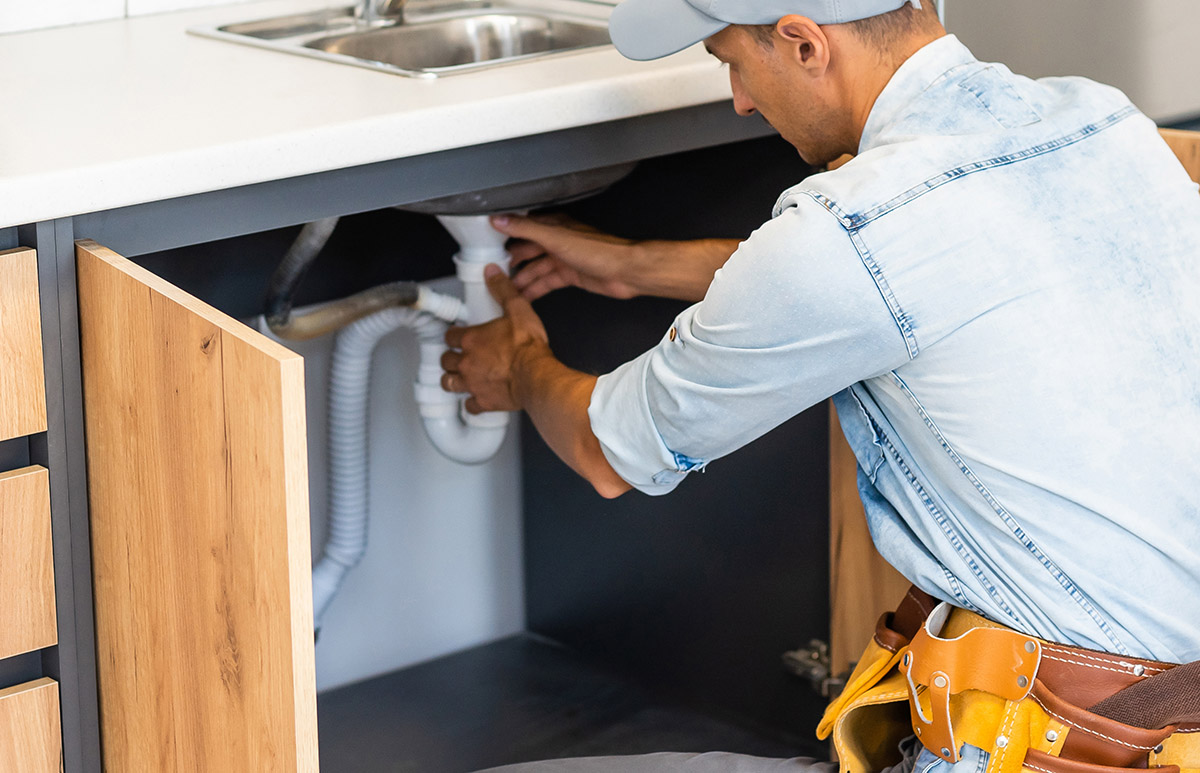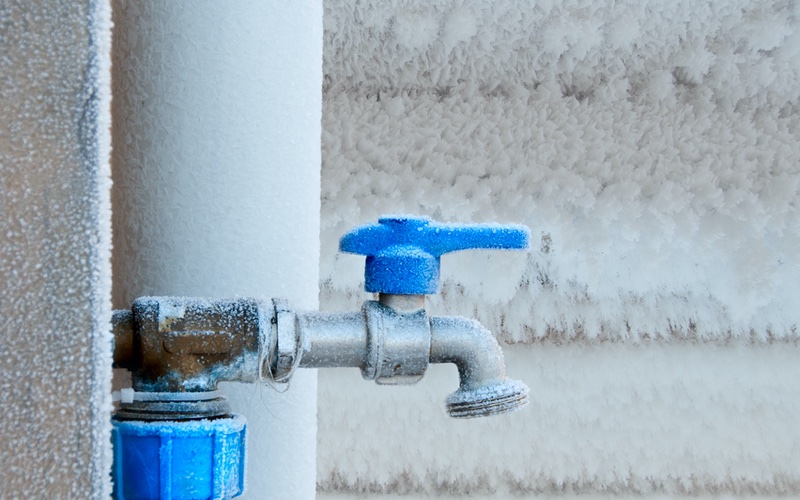Frequently Asked Questions
General
When searching for a plumbing company, there are a few things you can do to make sure you’re hiring a reliable and trustworthy team. We recommend the following steps:
- Ask for Recommendations: Start by asking family, friends, or neighbors whom they trust. A personal referral says a lot about the quality of service you can expect.
- Check Company Qualifications and Experience: Look for plumbers who are licensed, bonded, insured, and have experience in the industry. This ensures work will be completed correctly and in compliance with current regulations and safety codes.
- Compare Multiple Companies' Reviews, Pricing, and Services: Take time to compare several options, read online reviews, understand their service offerings, and make sure their pricing is clear and competitive. This helps you find the best value and fit for your needs.
- Ask Questions: Don’t hesitate to ask about warranties, experience, and what’s included in their services. A good company will be upfront, transparent, and happy to answer any questions you have.
- Family-Owned and Operated: WyattWorks has been a family-owned and operated company in the Mooresville / Huntersville area since 1980. We take pride in serving our neighbors and never recommend services we wouldn’t trust for our own families.
- Award-Winning Service: Our team is proud to have earned the Angie’s List Super Service Award seven years in a row and an A+ rating with the Better Business Bureau. Our technicians take pride in their work, and it shows!
- Respect for You and Your Home: Our technicians are trained to respect your time, property, and individual needs. We listen carefully, explain your options clearly, and always provide upfront pricing before any work begins, so there are no surprises.
- 24/7 Call Center: We answer our phones 24 hours a day, 7 days a week. Our local team is ready to take your call, provide guidance, and schedule your service so a plumbing expert can be at your door as soon as possible.
Yes! Every technician at WyattWorks is fully licensed, certified, bonded, and insured. Additionally, all team members undergo thorough background checks, drug testing, and continuous training to ensure they are up-to-date with the latest safety standards and industry practices.
The cost of plumbing services can vary depending on the type of work needed, the complexity of the job, and the parts or materials required. Minor repairs, like fixing a leaky faucet or unclogging a drain, will typically cost less than major projects like replacing a water heater or performing sewer line services.
To better understand WyattWorks pricing, reach out to our team. A customer service representative will clearly explain your options, answer your questions, and schedule a plumbing inspection with one of our licensed technicians. After the inspection, you’ll receive an honest, no-obligation quote so you know exactly what to expect before any work begins.
At WyattWorks, we stand behind the quality of our work with a 100% satisfaction guarantee. If you’re not completely happy with the service you receive, we’ll do everything we can to make it right.
Drain & Sewer
Drain clearing and cleaning are both focused on removing debris from pipes, but their scope and purpose differ. Here’s how:
- Drain clearing is a quick process focused on removing immediate blockages that stop or slow water flow. Tools like plungers, augers, or snakes are used to dislodge clogs and restore drainage. This is primarily a short-term fix that does not prevent future clogs.
- Drain cleaning is a much more thorough service that removes blockages and cleans the interior of pipes. It eliminates grease, mineral deposits, soap scum, and other types of accumulation. Techniques include video camera inspections and hydro jetting to restore pipes and reduce the need for future repairs.
Drain clearing is a quick fix to remove an obstruction, while drain cleaning removes buildup and maintains healthy plumbing systems. To better understand which service you need, contact WyattWorks.
The price of drain clearing can vary, depending on the size, location, and severity of the blockage. Prices generally start at $100 but increase for more complex blockages.
WyattWorks offers free estimates for our services–call today for more information.
- Kitchen: Cleaning every 4-6 weeks prevents food and grease buildup.
- Bathroom: Quarterly cleaning stops hair and soap from accumulating.
- Outside: Cleaning outside drains twice a year keeps them in good shape.
- Main sewer line: This is more on an as-needed basis, but yearly inspections can reduce the likelihood of sewer blockages.
In addition to DIY or routine cleanings, we recommend professional drain cleaning every 1 to 2 years to remove buildup and prevent major clogs, especially in homes with high water usage or older plumbing.
The primary methods professional plumbing companies use to clean drains include:
- Drain Snaking: This method uses a long, flexible cable called a drain snake or auger to break up or remove clogs in pipes. It effectively clears minor blockages like hair, food, or other debris. Snakes can be manual or motorized for tougher clogs, but they might not completely remove grease buildup or large obstructions.
- Hydro-Jetting: Hydro-jetting uses a motorized hose to spray high-pressure water through pipes, breaking down and flushing away grease, silt, debris, or other buildup. It offers a thorough cleaning that restores the inside of pipes to their original condition, helping prevent future clogs. It requires professional expertise, especially for older or delicate pipes, to prevent damage.
- Video Inspection: Plumbers often use small video cameras attached to flexible cables that move through the pipes and provide a live feed. This identifies the location and type of blockages, pipe damage, or buildup, helping to select the most appropriate cleaning method.
Cleaning a sewer drain typically involves using equipment such as a motorized drain auger (also known as a sewer snake) or high-pressure hydro jetting. DIY methods like chemical drain cleaners may offer a quick fix, but can damage your pipes over time. For a long-term solution, it’s best to call a licensed professional.
At WyattWorks Plumbing, our trained technicians start by diagnosing the blockage using a video camera inspection. Once we locate the clog, we use the most effective method—often hydro jetting—to safely and thoroughly remove grease, tree roots, and other debris from the sewer line.
Main sewer lines should be cleaned at least every 1-2 years, but may need more frequent cleanings based on factors such as the type of pipe, the age of the system, or the presence of tree roots in the area.
If you notice your septic tank is backing up or experiencing problems, contact a professional plumber immediately. Septic tanks are hazardous to health, and should only be handled by professionals who have the necessary equipment.
Drano is not recommended for clearing out pipe blockages. Many homeowners assume it is safe because it can be bought in many stores, but it is a corrosive chemical that can damage pipes, weakening them over time. There are many safer alternatives, like drain snakes, to clear pipes. It is always best to contact a professional like WyattWorks, who can clear blockages without causing additional harm to the pipes.
Gas Line
If a gas line is damaged, you may notice these signs:
- High gas bills
- Dead plants or vegetation
- Visible corrosion or cracks
- Hissing sounds near the line
- A smell of sulfur or rotten eggs
- Underperforming gas appliances
If you notice any of these signs on your property, evacuate immediately and contact your local emergency line.
Gas line replacement does not follow a strict schedule, and each house will have its own timeline for replacement. However, if a gas line is over 20 years old, annual inspections should be performed to ensure safety.
As a gas line ages, it becomes more susceptible to malfunctions or breakage, but it can remain safe and reliable with the right precautions. Regular inspections by a licensed professional are the best way to determine when replacement is necessary.
In most cases, gas lines must be replaced if there is a leak. If the damage to the line is very superficial, a repair may be possible. Given the dangerous nature of gas line leaks, any damage to the line is considered serious and requires professional assessment.
Never try to repair a gas line on your own; instead, call WyattWorks for help.
Several factors contribute to the cost of a gas line replacement. The length of pipe, number of valves and connections, the location of the pipe, and labor costs can all have a significant impact on the final price.
On average, a homeowner can expect to pay between $300 and $900; however, the cost can increase significantly depending on the extent of the required repairs and replacements.
No. Any work, even minor tasks, involving gas lines should be left to professionals. Mishandling gas lines can cause fires and explosions, so it should never be treated as a DIY project. DIY gas line work is unsafe, often illegal, and can void insurance coverage.
Gas leaks are extremely dangerous. They can cause fire, explosion, or carbon monoxide poisoning. Any suspected leak should be treated as an emergency.
If you suspect a gas line leak, evacuate your home and contact a professional, such as WyattWorks, immediately.
Leaks
Compression seal tape, plumber’s putty, silicone tape, pipe sleeves, pipe clamps, or rubber patches can help slow or stop a leak temporarily. For more serious leaks, the best first step is to shut off the water supply to the affected area to prevent water damage while you wait for professional help.
Minor leaks, such as a dripping faucet or a loose fitting, can sometimes be fixed with basic tools and plumbing tape. These minor repairs may offer a short-term solution, but pipe leaks behind walls, under floors, or inside ceilings require professional expertise.
The cost to repair a leaking pipe varies depending on the location, severity, and accessibility of the leak. Minor repairs might cost a couple of hundred dollars, while more complex issues behind walls or under floors could run $500 or more. It is hard to know what the true cost will be without consulting a professional, as each case is different.
We provide upfront, fair pricing—contact us today for more information.
Some signs of a plumbing leak include:
- Mold or mildew smell
- Decreased water pressure
- Warped floors or bubbling paint
- Water stains on walls or ceilings
- Unexplained increase in your water bill
- Sounds of running water when no fixtures are in use
If you notice any of these signs, don’t wait to contact a professional plumber. Early detection saves money and prevents extensive damage.
Professional leak detection can range anywhere from $75 to $2,000 or more. 1 Several factors influence the cost of leak detection, including the method used, the location of the leak, and the time required to locate it.
At WyattWorks, our experienced technicians use advanced, non-invasive tools to locate leaks accurately and quickly. We do our best to keep prices low for our customers and are always upfront with our pricing. The best way to get an accurate estimate for your leak detection is to contact us directly. Every home is unique, and we will need to ask a few questions for a better understanding of your leak situation before we can give you an accurate price.
https://www.yelp.com/costs/plumbing_leak_detectionPlumbing
Leaks are one of the most common pipe issues.
Over time, pipes can corrode, crack, or develop loose connections, creating small leaks that may go unnoticed until they cause significant damage. Even a minor leak can waste hundreds of gallons of water, drive up utility bills, and cause mold or mildew on walls, floors, and ceilings.
If you notice signs of a leak, like water stains, musty odors, or an unexpected increase in water bills, it’s important to address it quickly. The faster you act, the less likely you are to deal with serious water damage and costly repairs.
Yes, you can DIY some plumbing repairs, especially minor issues. Common problems like fixing a dripping faucet, unclogging a drain, repairing a running toilet, or replacing a showerhead can often be handled by homeowners with basic tools and a bit of research.
However, it’s important to know your limits. DIY plumbing comes with potential risks if improperly handled. These may include:
- Worsening the problem
- Causing water damage to your floors, walls, or other structures
- Creating unsafe or unsanitary conditions
- Voiding warranties
- Fines, penalties, or even legal action if your plumbing fails to meet local codes and regulations
If you’re unsure about the repair or don’t feel confident, it’s a good idea to call a professional plumber. An expert will come prepared with specialized equipment, knowledge, and experience, ensuring the issue is accurately diagnosed and safely resolved.
Yes, a plumber can fix a leaking toilet. There are a few ways they may address this issue, including:
- Simple repairs: Minor leaks can sometimes be fixed by tightening loose connections, applying sealants to small cracks, or adjusting the water level and float inside the tank.
- Component upgrades: If the components in your toilet, like flappers, fill valves, or flush valves, are worn or outdated, they may be replaced with newer, more efficient parts.
- Full system replacements: If your entire system is too old or beyond repair, replacing the whole toilet and related plumbing may be necessary.
Service call charges can vary depending on the plumbing company, the type of service needed, and the time of day. Most plumbers apply a standard service fee to cover the time, travel, and initial assessment of the issue.
At WyattWorks, we believe in upfront, honest pricing with no surprises. When one of our technicians arrives at your home, they’ll take the time to understand your situation, explain your options clearly, and present you with a flat-rate price before any work begins. This means no guesswork, hourly charges, or hidden fees–just dependable service you can trust.
If you notice a pipe leaking in your home, shut off your water supply, turn off electricity in the affected area, and contact a professional plumber as soon as possible.
If you need a temporary fix while waiting for help, you can try:
- Applying tape: Wrap plumber’s tape, silicone tape, or even duct tape tightly around the leak to slow or stop water flow.
- Using epoxy putty: Mold and press epoxy putty over the leak to create a temporary seal.
- Installing a pipe repair clamp: Place a rubber patch or gasket over the leak, then secure it firmly with a metal pipe clamp to hold the patch in place.
- Applying a pipe repair cast: Mold epoxy putty over the leak, then wrap fiberglass or resin material around the pipe to create a water-resistant seal.
These are only short-term solutions. Always follow up with professional repairs to ensure your plumbing is safe and reliable.
The frequency you should clean the drain depends on its type and how often it's used.
Here are some general guidelines you can follow:
- Kitchen Drains: Grease, food particles, and soap can quickly build up in high-use kitchens. Clean these drains every 4 to 6 months and use strainers to catch debris. Avoid pouring fats, oils, or coffee grounds down the sink to reduce buildup.
- Bathroom Drains: Hair, soap scum, and toothpaste residue are common cloggers in bathroom drains. Professional cleaning is recommended every 3 to 4 months, especially for homes with multiple occupants or heavy usage. Use drain guards and flush with hot water monthly to keep things flowing smoothly.
- Toilet Drains: Toilet drains don’t need frequent cleaning, but if you’re experiencing repeated clogs or have a large household, a professional cleaning every 6 months is a good idea. To protect your plumbing, never flush wipes, hygiene products, or other non-flushables–even if they claim to be flushable.
- Yard and Exterior Drains: Outdoor drains should be cleaned at least twice a year–once in the spring and again in the fall, ideally before and after the rainy season. Clear away leaves, dirt, and other outdoor debris to prevent blockages, flooding, and foundation damage.
If you need to unclog a drain, you can try these simple DIY methods before calling in a pro:
- Boiling Water: Pour a pot of boiling water slowly down the drain. This can help melt grease or soap scum in lightly clogged pipes.
- Baking Soda & Vinegar:Pour ½ cup of baking soda down the drain, followed by 1 cup of vinegar. Let it fizz for 10-15 minutes, then rinse with hot water
- Plunger: Use a sink or cup plunger to dislodge the clog. Be sure there’s enough water to cover the plunger’s head, and plunge firmly several times.
- Drain Snake or Zip Tool: Insert a plastic drain-cleaning tool to twist and pull out hair or debris near the surface. This is especially helpful for bathroom sinks and tubs.
- Clean the P-Trap: If the P-trap under your sink is accessible, place a bucket underneath, unscrew it, and remove any trapped debris. Reassemble and test the flow.
- Do NOT Use Drano - Although marketed as an effective drain cleaner, Drano and similar products can damage your pipe and contain harmful chemicals.
If these DIY methods don’t work, WyattWorks is ready to help! Our team will quickly diagnose the issue, clear the clog safely, and ensure everything works properly before we leave.
Sump Pump
Unless you possess both plumbing and electrical skills, it is highly unlikely you will be able to install a sump pump yourself. DIY projects are best suited for things like small renovations—anything involving your home’s services can lead to disastrous results if something goes wrong. Professional sump pump installation is advised to ensure correct sizing, drainage, and code compliance.
On average, sump pump installation costs range from $1,200 to $2,500, depending on the type of pump, basin, drainage needs, and labor requirements. Complex setups with battery backups, exterior drainage systems, or in hard-to-reach places may cost more.
Yes. A sump pump prevents water damage, mold growth, and structural issues, protecting your basement and foundation.
Properties that especially benefit from sump pumps include:
- Areas with frequent rainfall or heavy snowmelt
- Homes in flood-prone or high-water-table regions
- Homes with basements below the water table
- Properties near bodies of water or floodplains
For more information on why a sump pump could be the right investment for your property, contact WyattWorks.
With proper maintenance, a sump pump typically lasts 7-10 years.
Most residential applications require 1/3 to 1/2 horsepower sump pumps. Larger homes or properties with frequent flooding may require a more powerful unit. A 1/3 HP pump is typically sufficient for average basements, while a 1/2 HP pump is better suited for homes with an above-average water table.
A WyattWorks professional can determine the correct capacity for your property.
Yes, common issues like clogged intakes, stuck switches, or minor motor problems can usually be repaired. Routine maintenance or troubleshooting usually fixes these problems quickly. However, if the motor fails, the housing is damaged, or the pump is nearing the end of its lifespan, replacement might be more cost-effective.
Contact a licensed plumber or sump pump specialist to inspect the unit and determine whether repair or replacement is the best option.
Common reasons sump pumps fail include:
- Stuck or malfunctioning switches
- Clogged or frozen discharge lines
- Power failure during storms or outages
- Lack of regular maintenance and cleaning
Water Heater
Follow your manufacturer’s recommendations for service frequency. If any issues arise before a scheduled service date, it is best to call a plumber to address them.
A water heater may stop producing water if:
- The circuit breaker is tripped
- Sediment has built up in the tank
- A heating element has broken
- The thermostat is set too low
- There is a leak in the tank
If the problem is not apparent, call WyattWorks to evaluate the tank. We can diagnose the problem and provide a quote for the fix.
Signs of a failing water heater include:
- Discolored or smelly water
- Loud sounds coming from the tank
- Water pooling around the water heater or coming out of the sides
- Valves have come loose, or components have broken
- Water will not heat up
If you notice any of these signs, call a professional plumber.
Draining a water heater can help remove sediment buildup and keep it functioning properly. Homeowners with handyman knowledge may be able to perform this task on their own, but there are risks of damaging the water heater if it is done improperly. It is always best to trust a professional if you are not sure.
The cost of a water heater repair depends on the type of heater, the severity of the problem, and the labor required to fix it. Easier fixes cost less, like replacing a thermostat or valve. Larger fixes may cost much more, or require a complete replacement of the water heater.
Absolutely. By proactively maintaining a water heater, you can avoid expensive repairs and replacements. Regular maintenance will catch potential problems early and extend the life of the unit.
Signs it may be time to replace a water heater include:
- It requires many repairs
- It continuously breaks down
- It is over a decade old
Before investing in a new water heater, contact a plumber to inspect your system, as many issues can be easily repaired. The plumber will either recommend a repair or a system replacement if the damage is extensive.
Water Treatment
Yes, a water softener is a worthwhile investment for most homeowners, especially those living in older homes or areas with hard water. The damage that hard water can cause to fixtures and pipes over time can lead to costly repairs and replacements. With a water softener, you don’t have to worry about the stress and expenses of these repairs.
Water softeners remove calcium and magnesium, commonly found in groundwater. It replaces these ions with salt using a synthetic resin. This helps prevent scale buildup and prolongs the lifespan of plumbing systems, like faucets, toilets, shower heads, appliances, and piping.
You might need a water softener if you notice:
- White or chalky deposits on faucets, appliances, or dishes
- Dry or itchy skin and sticky hair after a shower
- Stiff laundry or colors that fade quickly
- A bad smell or off taste in your water
If you notice these signs, contact WyattWorks to test for hard water.
The cost of a water softener varies widely depending on the system you choose, its capacity, and your geographic location. The price ranges from $200 to $6000, but most homeowners can expect to pay around $1000-$1500 for a quality water softener. 1
It's always best to get multiple quotes from qualified plumbers to ensure you're getting a fair price. Contact WyattWorks for a free estimate. We always provide upfront pricing with no hidden costs.
1 https://www.angi.com/articles/how-much-does-water-softener-installation-cost.htmProper maintenance of your water softener ensures it runs efficiently, extends its lifespan, and continues protecting your plumbing system from hard water damage. Here’s how to maintain a water softener:
- Check salt levels regularly
- Break up salt bridges
- Clean the brine tank at least once a year and refill it with fresh salt
- Schedule routine maintenance with a professional plumber
Bathroom
If your bathroom remodel is purely cosmetic and doesn’t involve moving fixtures or altering water lines, you likely won’t need professional plumbing.
However, you should bring in a licensed expert if your project includes any of the following:
- Rerouting water supply or drain lines
- Replacing or relocating shut-off valves
- Updating old or damaged plumbing lines
- Moving or replacing a toilet, sink, tub, or shower
- Adding or relocating a washer hookup or utility sink
- Installing new plumbing fixtures such as faucets, showerheads, or bidets
When choosing new bathroom fixtures, keep these four tips in mind:
- Match Your Style: Select fixtures that complement your bathroom’s décor. Stick with consistent finishes and shapes to create a cohesive look.
- Check Quality: Invest in reliable brands and well-made materials. High-quality fixtures help prevent issues like leaks, rust, and premature wear.
- Confirm Compatibility: Before purchasing, make sure the fixtures are compatible with your existing plumbing or renovation plans to avoid unexpected changes or costs.
- Look for Water Efficiency: Search for products that help save water and reduce utility bills. WaterSense is a great label to look for–it certifies that fixtures meet EPA standards for performance and efficiency.
If you’re confident in your plumbing skills, DIY toilet installation is possible, but for most homeowners, it’s highly recommended to call a licensed plumber.
Toilets are directly connected to your sewer line, and any mistakes during installation can lead to serious issues, such as leaks, water damage, or exposure to harmful sewer gases. A professional plumber knows how to safely handle sewage systems, properly seal all connections, and ensure everything is installed to code.
If you notice any of the signs below, it usually means your problem is deeper than a normal clog and should be inspected by a qualified professional:
- Repeated Clogs: A single clog is common, but if you’re plunging multiple times in a day or experiencing constant blockages, it’s likely a more serious issue.
- Slow Draining: Water that drains very slowly or not at all suggests the blockage is deeper in the plumbing system.
- Gurgling Sounds: Bubbling or gurgling from the toilet or nearby drains may signal a problem with your vent system or a developing sewer line blockage.
- Overflowing: Occasional overflows can happen, but they shouldn’t be frequent or severe.
- Multiple Fixtures Backing Up: If toilets, sinks, tubs, or showers are backing up simultaneously, the issue is likely in the main sewer line, not just the toilet.
- Strong Odors: Persistent foul smells coming from the toilet or drains may indicate a deeper blockage or venting issue.
Yes, plumbers can absolutely update old bathroom fixtures.
A typical fixture replacement service will include:
- Water Shut-Off: The water supply is turned off to prevent leaks or flooding.
- Remove Old Fixtures: Existing fixtures are carefully detached without damaging surrounding surfaces or pipes.
- Inspect Plumbing: Supply lines, valves, and connections are inspected for corrosion, wear, and code compliance before installation.
- Install & Seal: New fixtures are aligned, connected, and sealed properly to prevent future leaks and potential issues.
- Testing: All connections are thoroughly tested to ensure proper function, drainage, and water pressure.
If you call a plumber to help find and fix a leak, there are a variety of different techniques they may use, including:
- Visual Inspections: This is usually the first step. Plumbers look for obvious signs of leaks, such as water stains, mold, bubbling paint, or puddles around sinks, toilets, appliances, and exposed pipes. If nothing is visible, they move on to specialized tools.
- Water Meter Testing: Your home's water meter can show if water is being used when everything is turned off. If the meter is still running, it’s a clear sign there’s a hidden leak somewhere in your plumbing system.
- Pressure Testing: This test checks the pressure level in your pipes. If the pressure is lower than it should be, it may indicate that water is leaking somewhere.
- Acoustic Listening Devices: These tools help plumbers “hear” a leak. They use sensitive microphones that pick up the sound of water escaping from a pipe, even if it’s under concrete or behind walls.
- Thermal Imaging: Plumbers use infrared cameras to spot temperature changes. Wet areas behind walls or ceilings are usually cooler than dry spots, so this tool helps pinpoint where hidden water may be leaking.
- Video Camera Inspection: For drain or sewer line leaks, plumbers use a tiny waterproof camera on a flexible cable. They feed it through the pipe to locate cracks, blockages, or broken joints without having to dig or tear into walls.
You’ll want help from a plumber if you notice any of the following issues with your sink:
- Slow drainage throughout the home
- Leaks or dampness in the cabinet beneath the sink
- Recurring clogs that return shortly after you clear them
- Gurgling sounds when water drains or the toilet flushes
- Water backing up into other fixtures (like the shower or another sink)
- Bad odors like rotten eggs, mildew, or musty smells coming from the drain
- Standing water that won’t drain, even after using a plunger or drain cleaner
Laundry Room
No, you don’t always have to hire a plumber to install a new laundry machine, but it is a smart idea if:
- You’re installing laundry hookups for the first time
- The water supply or drain lines need to be moved or replaced
- You notice leaks, corrosion, or damaged valves on existing connections
- You’re upgrading to a larger or more advanced machine that requires new plumbing lines
Plumbers can fix any washing machine leak coming from the water supply lines, drain hoses, nearby plumbing connections, fixtures, or shut-off valves.
If the problem is coming from the washing machine itself, it’s considered an appliance issue. In that case, contact your warranty provider or the retailer where you purchased the unit for repair or replacement options.
Yes, you can. Most modern washers come with clear instructions, and connecting the hoses and power supply is fairly straightforward.
However, if you’re unsure about connecting the water supply valves or drain lines, notice any damage or corrosion, or plan to move or upgrade your existing unit, it’s best to contact a professional plumbing company for help. They’ll ensure everything is properly installed, sealed, and up to code, so your new washing machine runs safely and efficiently.
The cost to unclog a laundry drain varies based on a few key factors:
- Accessibility: Clogs that are easy to reach typically cost less to clear. If the blockage is deep within the pipe or behind walls, additional time or specialized tools may be required.
- Severity: A minor lint or soap buildup is usually a quick fix, while a more serious obstruction or damaged pipe can take longer and cost more to repair.
- Type of Drain: Laundry floor drains, utility sinks, or main line blockages each require different cleaning methods and equipment, which can impact the overall price.
For an accurate estimate, reach out to WyattWorks. We’ll take a look at the problem, walk you through your options, and give you an honest, upfront quote before we start.
No, not all laundry rooms need a floor drain, but having one is highly recommended.
A floor drain provides an easy path for water to escape if a washing machine leaks or other plumbing components malfunction. Without one, even a small leak can lead to significant water damage, mold growth, and costly repairs.
If your laundry room floor drain is clogged, don’t ignore it! Standing water can cause serious health hazards and structural concerns.
Here’s what you can do right away:
- Use a screwdriver or wrench to lift off the drain cover and remove any surface debris.
- Shine a flashlight into the drain and clear out visible lint or buildup.
- Slowly pour a gallon of hot (not boiling) water down the drain to loosen residue.
- Use a plunger to create suction and dislodge the clog.
- Insert a drain snake, twist to break up the blockage, and pull out debris.
If the clog doesn’t clear after these steps, contact a licensed plumber as soon as possible. The blockage may be deeper in your system, and a professional can safely locate and clear it before it causes bigger plumbing issues.
Moen Flo Leak Protection
Moen Flo uses advanced sensors and real-time water flow monitoring to detect abnormalities in your plumbing system. It tracks pressure, flow rate, and temperature to identify issues like slow leaks, burst pipes, or unusual water usage.
Absolutely. Early leak detection can prevent thousands of dollars in water damage, reduce your water bill, and help extend the life of your plumbing system. With Moen Flo, you’ll have total control of your water from your smartphone, plus 24/7 alerts so you can catch issues before they become major problems.
In fact, according to Moen, 60% of homeowners received a leak alert within just 30 days of installation—many for issues they didn’t even know existed!1
Yes. If a major leak or pipe burst is detected, Moen Flo can automatically shut off your home’s water supply to prevent further damage. You’ll also receive real-time alerts through the Moen app so you can take immediate action, even if you’re not at home.
Yes, it can. By catching hidden leaks and alerting you to abnormal usage, Moen Flo helps you conserve water and avoid costly surprises on your monthly bill.
Yes. Moen Flo currently integrates with the following smart home platforms:
- Amazon Alexa
- Google Home
- Alarm.com
- Nice
- Ring
Yes. Moen Flo monitors the temperature of your water lines and can alert you if pipes are at risk of freezing, so that you can take preventative action before a pipe bursts.
About Wyatt Works in Mooresville / Huntersville, NC
Hear From Our Customers in the Mooresville / Huntersville area
